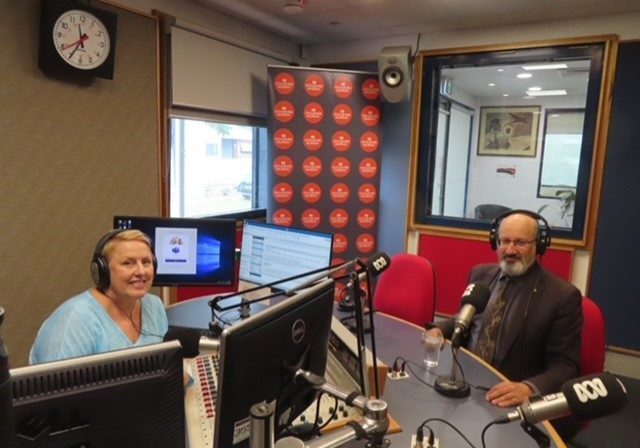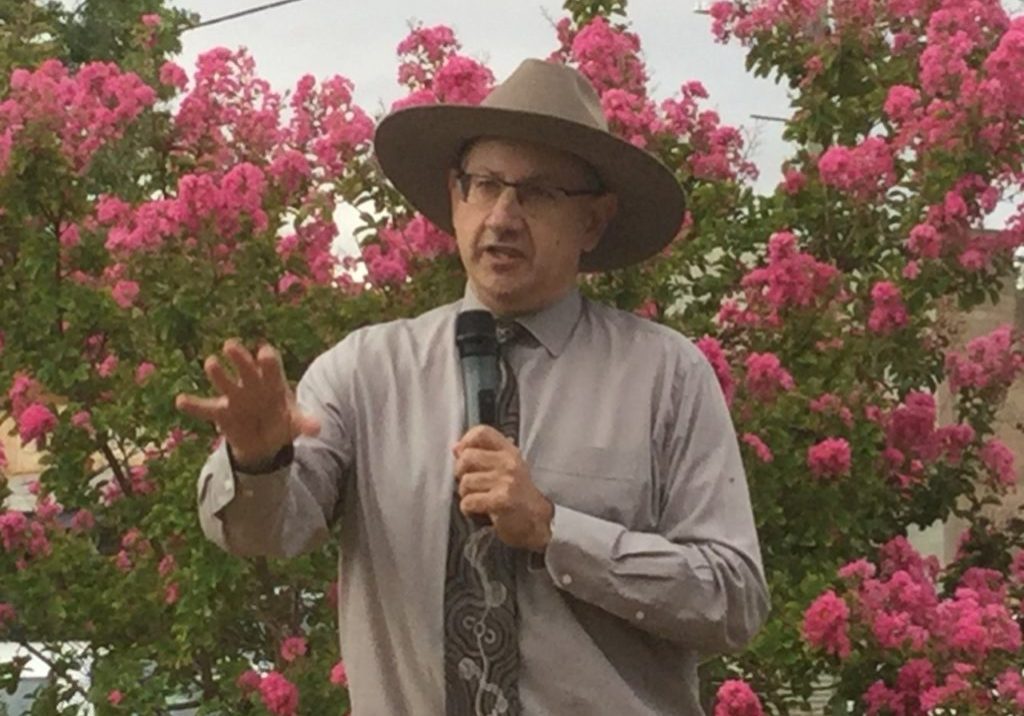Australia/Israel Review
Behind The News: Deaths down in Iraq
May 1, 2006 | AIJAC staff
Deaths down in Iraq
Despite the breathless predictions of an imminent civil war in Iraq, March and April have seen good news come from the beleaguered country.
Most importantly, the number of civilians killed in ‘acts of war,’ which includes terrorist attacks, was well down in both March and April. Some commentators feared the suicide attack that destroyed the sacred Shiite al-Askari Mosque in Samara in late-February would provoke a civil war.
While there was widespread violence in the days immediately after the attack, fears of civil war currently appear unfounded.
Indeed, the number of daily attacks by terrorists and insurgents in Iraq has remained steady in the last few months, since dropping considerably from the peak period of September to November last year.
The drop in the civilian death toll may have resulted in a lessening of US troop numbers in Iraq. Figures released at the end of March showed some 30,000 fewer American military personnel in Iraq than were there at the peak of commitment, in December last year.
The number of US troops killed in Iraq dropped in March for the fifth consecutive month. April, however, has seen this number rise again.
Update on Saddam’s terrorist links
In the April edition of “Behind the News”, we reported on the discovery and subsequent translation of documents from the former Iraqi regime that showed it was involved in planning terrorist attacks, as well as meeting with and funding terrorist organisations, including al-Qaeda.
The revelations continue.
In a recently translated March 2001 document, the head of an Iraqi airbase sought to confirm a request from the “Command of Ali Military Division” that he was “to provide that Division with the names of those who desire to volunteer for suicide missions to liberate Palestine and to strike American interests.” This is separate from the “Blessed July” attacks planned for 1999, which we reported on last month.
This letter seems to confirm allegations made by Russian President Vladimir Putin, when he said in 2004,
I can confirm that after the events of September 11, 2001, and up to the military operation in Iraq, Russian special services and Russian intelligence several times received . . . information that official organs of Saddam’s regime were preparing terrorist acts on the territory of the United States and beyond its borders, at US military and civilian locations.
Another document has revealed that the former Iraqi regime had planned to use “camels of mass destruction” against coalition troops, in what one commentator has called the “roadmap of the insurgency.”
This document, hand-written on official paper, shows that foreign volunteers were to be trained “in the use of Kalashnikovs and hand grenades.”
The document goes on to say, “The largest section of the course will be specialised to focus on using the explosive material in the body, in motorcycles, in cars, and in camels”. The camels were to be “provided by the Directory of General Military Intelligence”.
Behind the News” will keep you updated on future revelations as more of the documents from Saddam’s Iraq are released.
FIFA condemns Israel, not Palestinians
Israeli soccer fans were left stunned in March when news surfaced that FIFA, the world soccer body, had chosen Israel to be the target of its first-ever political condemnation.
In its ongoing efforts to stop Palestinian terrorists firing Qassam rockets from the Gaza Strip into Israel, the IDF fired an artillery round, which reportedly damaged the Palestine Stadium.
No one was injured in the Israeli attack.
According to press reports at the time, FIFA chose to criticise Israel’s military action – completely ignoring both the fact that Israel was responding to Palestinian aggression and that an Israel soccer pitch had been damaged by Palestinian rockets just a short time earlier. Moreover, an Israeli child was injured in the Palestinian rocket attack.
In response, the Israeli ambassador to Switzerland told FIFA that Qassam rockets had been launched at Israel from near the stadium.
 |
| Iraq’s soccer team: no longer playing for their lives |
Middle East commentator Tom Gross published in the National Review a long list of soccer related atrocities completely ignored by FIFA in years past. These included reports that the Taliban executed as many as 30 people during half-time at a match in Kabul; that Saddam Hussein’s son had Iraqi national soccer players repeatedly tortured after failing to reach the World Cup finals in 1998; and that the Palestinian Authority named a soccer tournament for children in honour of a suicide bomber who killed 29 Israelis in March 2002.
In the last days of April, FIFA released a detailed letter of explanation, claiming that at no time (contrary to initial reports) did FIFA seek to place sanctions on Israel. FIFA also made clear that its condemnation was not in the form of an official letter, but rather just an e-mail to the Israeli ambassador to Switzerland.
Iran ups the ante – again
Iran has spent the month of April upping the ante in a series of statements and veiled threats. Visits to notorious and still-active terrorist leaders in Syria and triumphant announcements regarding advances in its efforts to produce nuclear material have been well publicised.
Under the radar, however, have been Iranian boasts regarding its missile capabilities.
Israeli newspaper Haaretz reported in late April that Iran has already received some of the long-range missiles it has purchased from North Korea.
With a range of some 2,500 km, the missiles are capable of hitting Israel and large parts of the European Union. Originally a Soviet design, the missiles are capable of being modified so as to carry a nuclear warhead.
Iran has for years been developing a domestic series of rocket, known as ‘Shihab.’ The latest of these rockets, the Shihab-3, has a range of around 1,300 km and is capable of hitting Israel from certain areas of Iran. Indeed, it was reported at the beginning of April that Iran had successfully redesigned the Shihab-3 to support nuclear warheads. A longer-range missile, the Shihab-4, has been in the works for years. However, it seems that in its rush to have a large number of nuclear-capable weapons, Iran has abandoned its domestic research program in favour of importing from North Korea.
![]()






